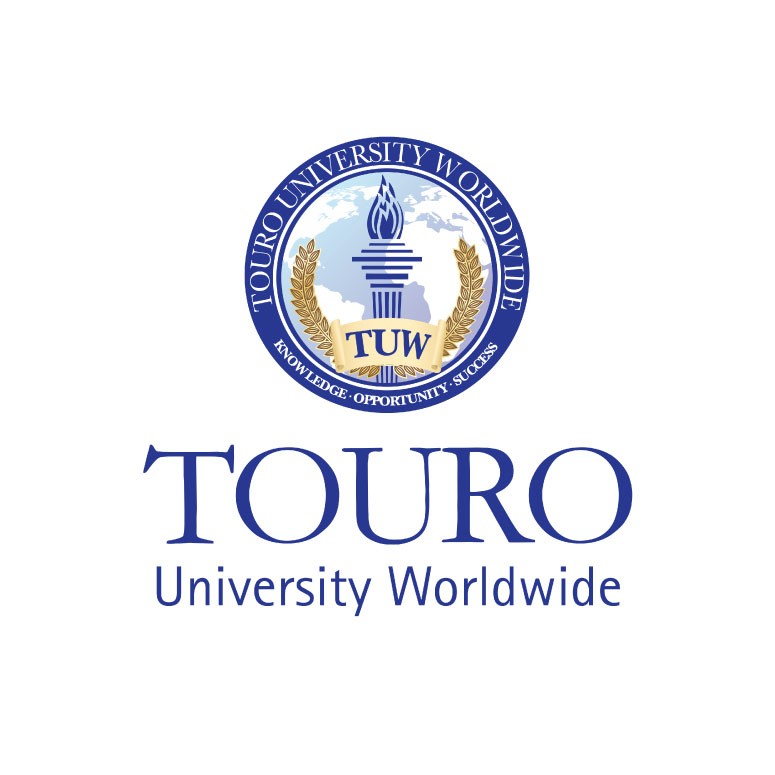Health education programs build on the skills that students have acquired during their undergraduate years to give individuals and communities the knowledge and tools they need to make healthy choices and improve their physical well-being. Graduates of these programs can work in educational, corporate, or community settings, all of which are centered around the latest in academic health research and modern organizational techniques.
We do the research so you don’t have to!
That’s right, we get the hard work out of the way. We know you have educational goals that you’re itching to pursue, but you may not know where to start. We’ve crafted a unique and proven ranking methodology that sets us apart. Our rankings are based on the following three aspects:
40% Potential salary after graduation
30% Individual program accreditation
30% Overall affordability
Want to learn more about how we gather that information? Feel free to visit our dedicated methodology page for a step-by-step breakdown. We’re an open book!
If you’re interested in health education, check our list of the 14 Best Online Master’s in Health Education!
East Carolina University

A public university located in Greenville, NC, East Carolina University began as a teacher’s training school in 1907 and now has a student population of nearly 30,000. ECU has nine different undergraduate schools and colleges, along with four professional schools and its graduate school. They offer 76 different master’s programs and 16 doctoral degree programs.
ECU has a Master of Arts in Health Education program that provides training for students looking to work in clinical, community, or corporate settings related to health education. The base curriculum for the program requires 30 credit hours of coursework.
The program is presented in a 100% online format. Students complete a series of core courses, before choosing one of three options: thesis, internship, or coursework. This decision helps students to determine their elective course load. Core courses include Introduction to Epidemiology and Needs Assessment in Health Education and Promotion.
Program applicants should have a minimum 2.7 undergraduate GPA and must submit satisfactory scores from either the GRE or MAT exam. Students below these qualifications may still be admitted but will be assigned supplemental coursework by the department’s graduate faculty to make up for deficiencies in their application.
Loma Linda University

Loma Linda University is a Seventh-Day Adventist school that offers programs primarily focused on the health sciences. Loma Linda has eight schools, which offer more than 100 degree and certificate programs. The school’s campus, in Loma Linda, CA, is also home to an on-campus church and a Seventh-Day Adventist K-12 school.
Loma Linda offers an online Master’s in Public Health program in Health Education & Wellness Coaching. Students in the program learn not only about disease, nutrition, and fitness, they also gain motivational and behavioral skills related to wellness coaching. The program is designed to be completed in approximately one year (five quarters).
The program’s curriculum is divided between public health core courses and major courses. The public health core includes courses such as Public Health for Community Resilience and Public Health and Health Systems. Major courses cover topics such as wellness coaching, exercise physiology, and health aspects of vegetarian eating.
Loma Linda offers a number of Master of Public Health programs, covering subject areas such as Epidemiology, Global Health, Nutrition (Coordinated Program in Dietetics), and Population Medicine. Program graduates are eligible to sit for a number of certification exams, including the Certified Health Education Specialist credential.
Georgia State University

Georgia State University is the largest institution of higher learning in the state of Georgia, with more than 52,000 students. GSU offers more than 250 degree programs, and its main campus is located in Atlanta. The Carnegie Foundation classifies Georgia State as having “very high research activity.”
Georgia State is home to a Master of Education program in Health and Physical Education. The program is designed for professionals working in pre-kindergarten through 12th-grade health and physical education. It is a fully online program that requires 36 credit hours of coursework. Students can enter in the fall, spring, or summer semesters.
Students take nine hours of professional studies courses, such as Methods of Research in Education. They also take 21 hours of teaching field content, which includes five required courses, such as Curriculum Development for Health, Physical Education, and Adaptive Physical Education. The final six credits are dedicated to inquiry for practice courses, which revolve around the student’s own action research project.
East Stroudsburg University of Pennsylvania

East Stroudsburg University of Pennsylvania is a public university with around 7,000 students. The school was founded in 1893 as the East Stroudsburg Normal School, which served to educate teachers for the state of Pennsylvania. It became a state college in the mid-1960s, before eventually joining the public university system and adopting its current name in 1983.
East Stroudsburg’s Master of Science in Health Education program is designed for professionals with work or academic experience in health education or promotion. The program prepares students for both the Master Certified Health Education Specialist and Certified Health Education Specialist exams.
The plan of study includes 30 credit hours of coursework, and students generally complete the program in two years. Courses are delivered in a preset sequence, which begins with Determinants of Disease and Health Policy and Administration. Later courses cover Health Education Research and Scientific Foundations of Health Behavior.
East Stroudsburg offers a special tuition-funding opportunity through what it calls its P.E.T. program (PreK-12 Educator Tuition Program). This program allows educators from local public school districts to attend certain graduate certificate and degree programs without having to pay tuition. Students in the ESU MS in Health Education program are eligible for this opportunity.
Nova Southeastern University

Nova Southeastern University is located in Davie, FL. The private university has 18 schools and colleges and offers professional degrees in subjects including law, business, and a number of the health sciences. The school’s health science focus is, in part, due to its 1994 merger with the Southeastern University of the Health Sciences.
Nova Southeastern offers a Master of Health Science program designed to be completed using a distance-learning format. For most students, there are no on-campus requirements to complete the degree. Students can choose from one of six specialization areas, or they may pursue a Generalist specialization.
The specialization areas available in the program are Sports Medicine, Higher Education, Health Care Administration, Health Law, Leadership in Health Care, and Health Care Risk Management. Coursework in the program is divided among core (12 credits), specialty (15 credits), and practical (10 credits) coursework, for a program total of 37 credit hours.
Valdosta State University

Valdosta State University has a 168-acre campus located in Valdosta, GA. In addition to its main campus, VSU allows students to take classes at Moody Air Force Base, which is just north of Valdosta. The school has 11,000 undergraduate and graduate students who choose their majors from among the nearly 100 degree programs that the school offers.
Valdosta State students can complete a Master of Education degree with a major in Kinesiology and Physical Education. The program includes 33 credit hours of coursework, and classes are delivered in a fully online format. The program curriculum includes fieldwork that allows students to work with public school children in a variety of grades and settings.
The program is designed to take around two years (five semesters, including two summers) to complete. Students generally begin the program in the summer. Coursework includes Teaching Applications in Physical Education, Human Kinetics, and Contemporary Program Development. The program ends with a capstone learning experience. Standardized test scores are not required for admission.
VSU has a Health and Physical Education Majors’ Club, which gives students the opportunity to share innovative teaching strategies, motivate each other, and engage in community service projects that promote healthy living and physical activity in and around Valdosta. Applicants are expected to hold a valid Georgia or reciprocal state certificate in health education and/or physical education.
Texas A & M University

Texas A&M was founded in 1876, and its name refers to its original purpose as an agricultural and mechanical college. It has the second-largest student body of any university in the United States and is the largest university in Texas. Texas A&M was the first school of higher education in Texas and is home to the George H. W. Bush Presidential Library.
Texas A&M offers students an online 36-credit hour Master of Science in Health Education program offered through the Department of Health and Kinesiology. The curriculum is designed to give students a working knowledge of contemporary academic literature around health education, along with research and leadership skills related to the modern workforce.
The degree plan includes both thesis and non-thesis options. Students in the thesis program interact with faculty members to pursue a unique body of knowledge within the discipline. Thesis students compile a competitive scholastic and professional portfolio that is based on a set of core responsibilities and competencies.
Those who choose the non-thesis option complete a block of core courses (referred to as the “health education core”), a professional internship, and elective coursework. Students may also opt to complete the MS with an emphasis on teacher certification; this is ideal for those who wish to pursue careers in education or education-related environments.
Touro University Worldwide

The Touro College and University System is a private system of universities headquartered in New York City. The school has branch locations in Henderson, NV; Paris; Berlin; Moscow; and Jerusalem. It also has a law center, School of Health Sciences, and College of Osteopathic Medicine. Touro University Worldwide is the school’s online learning service.
Touro University Worldwide’s Master of Science degree can include a concentration in Health Education. The program prepares students for the Certified Health Education Specialist and Master Certified Health Education Specialist exams. The program curriculum includes 12 courses (36 credit hours).
Students complete eight core and four elective courses. Core courses include Cultural and Cross-Cultural Perspectives in Health, as well as Legal and Ethical Issues in Public Health. Applicants to the program are expected to have a baccalaureate degree with a minimum 2.5 GPA. There is no application fee.
Nebraska Methodist College of Nursing & Allied Health

Nebraska Methodist College of Nursing & Allied Health is a private university located in Omaha, NE; the school is affiliated with the United Methodist Church. Its programs focus primarily on health science fields, and nursing and allied health professions in particular. It has around 640 undergraduate students and 70 graduate students.
Nebraska Methodist has a Master of Science in Wellness and Health Promotion Management program that includes the option for one of two areas of specialization. Students can pursue either a Worksite & Community Wellness specialty or one in Medical Fitness Management. The program is designed to be completed in 19-22 months.
Courses in the program last 5-10 weeks. The overall requirement for the degree is 36 credit hours, and courses are delivered through a flexible online format. No thesis is required, but a practice-based capstone is. The curriculum for the program includes mostly core courses, with two or three specialization courses, depending on which subject area a student chooses.
Maryland University of Integrative Health

The Maryland University of Integrative Health is a private graduate school of alternative medicine. The Laurel, MD university has had a number of names in the past, including the Tai Sophia Institute and the Traditional Acupuncture Institute. Its curriculum covers topics including yoga therapy, herbal medicine, integrative health sciences, and acupuncture.
MUIH offers a 35-credit Master of Science in Health Promotion program. Students choose between a concentration in either Community Health Education or Workplace Wellness. This fully online program can generally be completed in two years, and students in the program are eligible for federal financial aid.
Both concentration areas qualify graduates to sit for the Certified Health Education Specialist exam. The first 23 credit hours are dedicated to core courses, such as Health Education Program Evaluation and Topics in Diversity for Health and Healing. The final 12 credits are dedicated to the student’s specialization and include a health promotion capstone.
American College of Education

American College of Education is an online university based in Indianapolis. This for-profit school focuses primarily on education, health care, and nursing programs. The school was incorporated in 2005 and is accredited by the Higher Learning Commission. It offers bachelor’s, master’s, specialist, and doctoral degree programs.
American College of Education offers a Master of Education degree in Health and Wellness Education. The program is designed to take 15 months to complete and is delivered in a flexible format that allows students to maintain professional and personal obligations while they are in school. Students learn to apply their knowledge to Pre K-12 schools, community institutions, and organizations in both the private and public sectors.
Students complete 31 credit hours of coursework in research, education and teaching core, leadership, and health and wellness classes. The health and wellness courses cover areas such as Technology, Leadership, Health Informatics and Human Development.
Program applicants must have an undergraduate degree GPA of at least 2.75. Students with a GPA above 2.5 but below 2.75 are eligible for provisional admission. This GPA can refer either to the student’s cumulative coursework or to the most recently earned 60 hours of credit.
Jackson State University

Jackson State University is one of the largest historically black universities in the United States. Jackson State is a member of the Thurgood Marshall College Fund, which supports and represents more than 300,000 students at a wide range of HBCUs. JSU’s main campus is in Jackson, MS, and is home to an acclaimed marching band known as the “Sonic Boom of the South.”
Jackson State University’s online learning service has an option for a Master of Science in Education with an emphasis in Physical Education. Students have a number of specialization options available in the program, including Health, Physical Education, and the Physiology of Exercise, among others.
There are 36 semester hours of coursework in the program. Students begin with courses such as Methods of Educational Research, Motor Learning and Human Performance, and Biomechanics. These core courses make up 24 hours of the degree, while the final 12 hours come from electives.
Those who apply to the program must have a minimum cumulative 3.0 GPA for regular admission or 2.5 for conditional admission. Applicants also complete an interview and submit a writing sample, as well as three letters of recommendation. The final admissions requirement is a portfolio documenting the applicant’s strengths in teaching, professional presentations, community service, professional memberships, and coaching.
Morehead State University

Morehead State University is a public university located in Morehead, KY. It was founded in 1887 as the Morehead Normal School and transitioned through roles as a teacher’s college and a general state college before becoming a full university in 1966. MSU has just over 10,000 students and an endowment of around $42 million.
Morehead State University offers a 30-credit hour Master of Arts in Wellness Promotion program that has both 1- and 2-year completion options. Students completing the program in one year take two courses in the summer, followed by four courses each in the fall and spring semesters. Two-year track students take roughly two courses per semester.
Students begin the program with 24 credit hours of coursework, which includes Principles of Epidemiology and Managing Worksite Wellness. Students then have three options for earning their final six credits: two electives approved by the department, the completion of a directed research project and one elective, or the completion of an original thesis.
Frequently Asked Questions
Applications to a master’s in health education begins with earning a bachelor’s degree from a regionally accredited university. Students are not technically required to have a major in a specific field, but it is generally expected that students will have training in fundamental scientific areas, such as biology and kinesiology.
Since students in online programs often maintain professional positions while they are in school, most also have professional experience in a given health care field, such as work as a Registered Nurse or a Physician’s Assistant. Again, this experience is not quantified as a requirement (e.g., “minimum one year’s experience”), but it is a part of the holistic consideration given to each application/candidate.
Students must also submit their GPA and, possibly, GRE score information. The GPA requirement is most often the cumulative figure or refers to the final 60 semester hours of undergraduate coursework. GRE score requirements can sometimes be waived, if an applicant has a certain GPA or significant professional experience.
Professionals in the field can earn upwards of $65,000 per year, especially when they have a specialized graduate education. Many programs prepare students to earn the Master Certified Health Education Specialist designation, which can also come with a pay raise or the possibility of a promotion!
The Bureau of Labor Statistics expects more than 14,000 new Health Educator positions to open in the coming decade, a pace it classifies as “much faster than average” growth for a particular job field.
A Master’s in Health Education is a graduate-level program focused on equipping individuals with advanced knowledge and skills in promoting health and wellness. It covers areas such as public health, community health education, and health promotion strategies. Graduates can pursue roles as health educators, public health advocates, or wellness program coordinators, contributing to improving overall community health.
A health educator focuses on promoting health and wellness by developing programs and campaigns to educate communities about healthy behaviors. On the other hand, an epidemiologist is a scientist who studies the patterns and causes of diseases in populations, aiming to prevent and control their spread. While both contribute to public health, health educators work more directly with communities, whereas epidemiologists are involved in research and data analysis to understand and address disease trends.
Related:
- Best Clinical Research Masters Online
- Top Masters in Health Education and Promotion
- Best Ph.D.s in Health Education
- Top Health Education Online Degree
